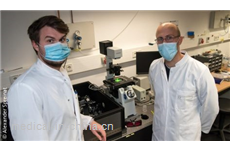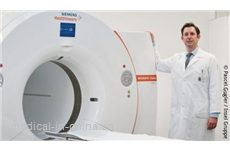
Smart wound bandage may track healing
Researchers from Skoltech and the University of Texas at Austin have presented a proof-of-concept for a wearable sensor that can track healing in sores, ulcers, and other kinds of chronic skin wounds, even without the need to remove the bandages. The paper was published in the journal ACS Sensors.

Detecting bacteria with fluorescent nanosensors
Researchers from Bochum, Göttingen, Duisburg and Cologne have developed a new method for detecting bacteria and infections. They use fluorescent nanosensors to track down pathogens faster and more easily than with established methods.

Lung-on-chip: body's response to early tuberculosis infection
Findings reveal the early events that take place during tuberculosis infection, and provide a model for future research into respiratory and other infections. Scientists have developed a lung-on-chip model to study how the body responds to early tuberculosis (TB) infection, according to findings published today in eLife.

Wearables: electronic skin has a strong future stretching ahead
A material that mimics human skin in strength, stretchability and sensitivity could be used to collect biological data in real time. Electronic skin, or e-skin, may play an important role in next-generation prosthetics, personalized medicine, soft robotics and artificial intelligence.

Whole-body PET/CT: World’s first installation in Bern
The world’s fastest whole-body PET/CT scanner is being put into service today at Bern University Hospital’s Inselspital Department of Nuclear Medicine. This scanner of the latest generation opens up new dimensions in research, diagnostics and therapy planning. The manufacturer (Siemens Healthineers) chose Bern as the location for the first installation worldwide because of its top-class research, its proven concept for networked operation and its role as a leading center in medicine.